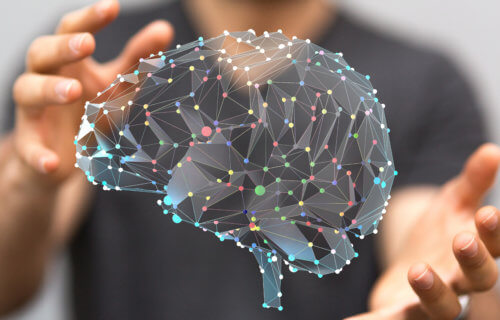LEIPZIG, Germany — While educators like to compare the heart to a pump and the kidneys to a filter, the brain often draws comparisons to a computer. Since both systems perform calculations and produce specific answers, it seems like a perfect match. Researchers in Germany however, say this isn’t the case. Their new study finds the brain tends to be much more “excitable” and your thinking power drifts to whatever is stimulating it more.
The Max Planck Institute for Human Cognitive and Brain Sciences finds that the brain networks that process different stimuli are always “on” at least a little bit. If neurons processing sound are firing faster than others, your brain focuses on what you’re hearing, not seeing or smelling.
Brains, computers have key differences
Let’s say a computer receives a few inputs. The computer performs a series of calculations and produces the same exact output every single time.
The German team says the brain doesn’t quite work this way. Let’s say you’re sitting in a room with a ticking clock, a painting of a bowl of fruit, and burning incense. Even though the brain is continuously receiving these three inputs, it’s not always processing them the same way.
CLICK HERE TO SUBSCRIBE TO OUR NEWSLETTER & GET THE LATEST STUDIES FROM STUDYFINDS.ORG BY EMAIL!
At some moments, the ticking of the clock will sound like it’s pounding on your eardrum. At other moments, the smell of the incense will be the dominating stimulus. The ticking clock won’t be heard, even though the clock is still ticking just as loudly. Eventually, the painting of the bowl of fruit will remind you how hungry you are and you’ll forget all about the other stimuli.
Testing ‘excitement’
The researchers took electrical recordings from people’s brains as they applied electrical stimuli to specific brain networks. Their experiment looks at how the organ responds to direct electrical inputs. The results reveal the brain does not always produce the same outputs, despite receiving the exact same inputs it did in the past.
“There is always a certain amount of activity between the neurons of a network, even if there are apparently no external influences on us. So, the system is never completely still or inactive,” explains first author Tilman Stephani in a press release.
The brain is constantly monitoring the body’s internal processes like breathing, digestion, and even internal thoughts. These processes shape the “excitability” of each brain network.
“The dynamics from internal processes are thus associated with the system´s excitability and therefore, also the stimulus response. So, the brain does not seem to function like a computer where the same incoming information always means the same reaction,” says Stephani.
The scientists note that the excitability of different networks does not occur completely at random. There’s a temporal pattern to the firing of different neural networks. The team is now looking to work out what this pattern might be.
The study is published in the Journal of Neuroscience.
